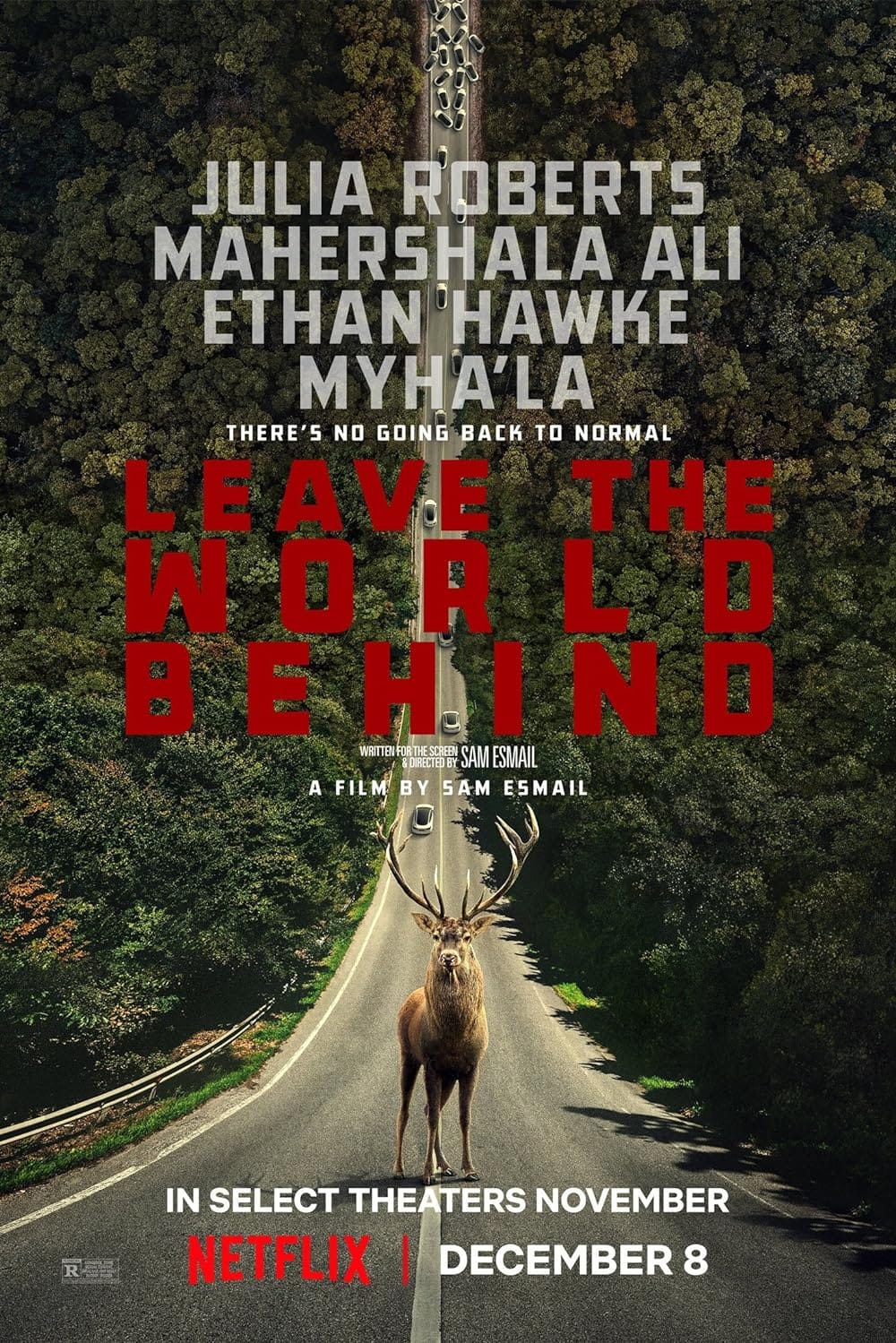What Will Collapse be Like? 6 Lessons from "Leave the World Behind"
Like a realistic collapse scenario, Leave the World Behind was ambiguous, meandering and inconclusive. A combination of existential dread with daily monotony. That's the point.

I watched "Leave the World Behind" last night on Netflix. The movie has mixed reviews - many hated it - but I think that's because people expect it to deliver something it wasn't built to provide.
Leave the World Behind didn't follow the typical Hollywood tropes. I think some viewers were disappointed because it doesn't follow a standard story-arch with all loose ends neatly tied by the end.
Like a realistic collapse scenario, Leave the World Behind was ambiguous, meandering and inconclusive. A combination of existential dread with daily monotony. That's the point.
The unglamorized, abstract story is what made it real for me. Collapse doesn't have an observable start, middle and end - it just builds on itself. From this perspective, I thought the movie was a fair thought experiment of one potential collapse scenario. With that in mind, it met my expectations.
What's particularly troubling about this film is that a former US President - Barack Obama - was heavily involved with its development. If anyone knows about the existential threats that exist beneath the public veneer it would be a US President.
I can't help but imagine that elements of Obama's real-world briefings snuck their way into the storyline. What does that tell you about the plausibility of collapse in general, and this movie's premise in particular? Was this a veiled warning? Was this catharsis for Obama's demons?
Leave the World Behind is a collapse case study applied to film that will leave you thinking long after watching. Whether or not you like the film, it provides 6 critical reminders about collapse:
1) Collapse Will be Confusing
Imagine the wi-fi going out. You don't really know why it's out or how long it will take to turn back on. So you wait. But then other things stop working or are no longer available. You can't piece together what's happening or why.
There will be no announcement to let you know society is collapsing.
There won't be any explanation as it occurs. Things just start...changing. It will take considerable time before you realize what's happening. At first you'll expect things to get better, but eventually realize they won't. The rising permanence of the situation will scramble your synapses.
2) You May Get Cut Off from Immediate Family
When, how and at what pace collapse occurs is unknown. If unpredictable and fast, it could leave loved ones suddenly cut off. Even people living in the same household may never be seen again, if they are away.
Cherish every moment with loved ones because you just never know which will be your last.
3) Your Preparations Might Prove Useless
The unpredictable effects and timing of collapse could hit at the most inconvenient of times. You might be travelling for work or staying with the in-laws. You don't know who you might get stuck with - and become dependent on - for an extended period of time.
Consequently, you could end up far from any of your preparatory efforts. Facebook (Meta) CEO Mark Zuckerberg is reportedly building a $100+ million doomsday bunker somewhere in Hawaii. In a collapse scenario, that bunker is only worth something if Zuckerberg is able to access it. What happens if communications and transportation are down while Zuck is stuck somewhere else on the planet? If that happens, he'll just be another Joe trying to stay alive.
4) Everyone for Themselves
As confusion reshapes into self-preservation, distrust will grow. Your inner circle may consist of only immediate family. Even friends may turn on each other when resources become scarce.
Surviving might demand extreme selfishness, requiring you to ignore the needs of outsiders to preserve your limited supplies. Help - aka social assistance - is a perk derived from surplus. You won't be in a position to help and few will offer to help you.
5) Any Shortfalls Will Come at a High Cost
There will be some willing to help, but any outside assistance will come at a great cost. People will not give up precious resources easily. Few things are more valuable than food, medicine, energy and skilled labor in a time of collapse. That's pretty much all anyone will care about. If you don't have any of that, expect the cost of whatever you need to be astronomical, if attainable at all.
6) The Final Collapse Will Arrive When We Turn on Each Other
Ultimately, final collapse occurs when social contracts and norms break down. It happens when we turn on each other - murder, plundering, expropriation - to survive.
Not all societies will decay to this point. Some may have strong leadership and enough infrastructure to remain organized. Others will shrink into a new cooperative stasis, sharing resources and allocating responsibilities.
Unfortunately, observing the world today, most societies will probably devolve into an individualistic hellscape with every man for himself.





